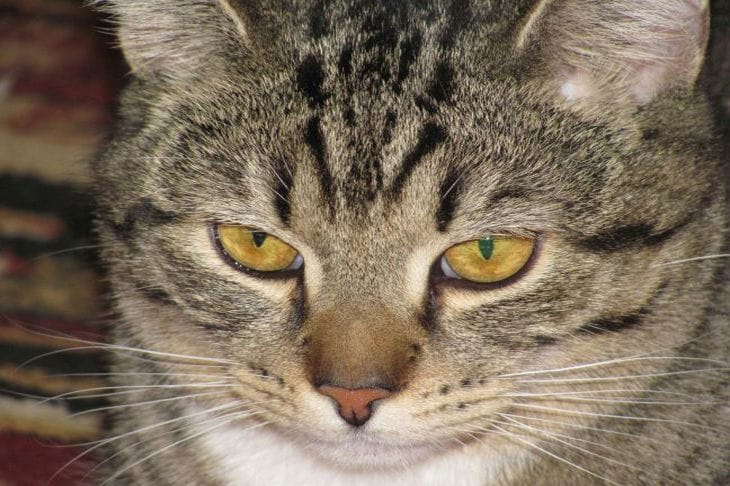Cats, like people, are susceptible to stress.
Moving, the arrival of a new family member, a change in the usual daily routine - all this can cause anxiety and discomfort in the animal.
It is important to be able to recognize the signs of stress in a cat in order to take timely measures and help it cope with this problem.
Changes in behavior
One of the most obvious signs of stress in a cat is changes in its behavior.
An active and playful cat may become apathetic and withdrawn, hiding from people and other animals. Or, on the contrary, a calm and balanced cat may begin to show anxiety, run around the house, meow for no reason.

Also, stress can manifest itself in the form of aggression directed at people or other animals.
Appetite disorders
Stress can affect a cat's appetite. It may refuse to eat or, on the contrary, start eating more than usual.
In some cases, stress leads to the development of eating disorders such as bulimia or anorexia.
It is important to monitor your cat's appetite for changes and consult a veterinarian if necessary.
Toilet problems
Stress can cause problems with the toilet in a cat. It may start going to the toilet outside the litter box, urinating on furniture or carpets.
This may be due to the cat feeling fear or anxiety while in the litter box, or because the cat is trying to mark its territory.
Excessive licking
Cats are clean animals that spend a lot of time grooming their fur. However, excessive licking can be a sign of stress.
A cat may lick itself until it develops bald spots or skin irritation. This may be because licking calms the cat and helps it cope with anxiety.
Hidden Signs of Stress
Some signs of stress in cats may be more subtle. For example, your cat may blink more often, its ears may be pressed back against its head, and its pupils may be dilated. It may tremble or twitch its tail. It is important to pay attention to subtle signals to recognize stress in your cat.
How to Help Your Cat Cope with Stress
If you notice signs of stress in your cat, it is important to take steps to help them cope with the problem. The first step is to identify and eliminate the source of stress.
If this is not possible, you need to create comfortable conditions for the cat, where it will feel safe. Provide it with a secluded place to rest, where no one will disturb it. You can also use special means that help cats cope with stress, such as pheromones or sedatives.
Earlier we talked about why dogs bring sticks back from walks .








